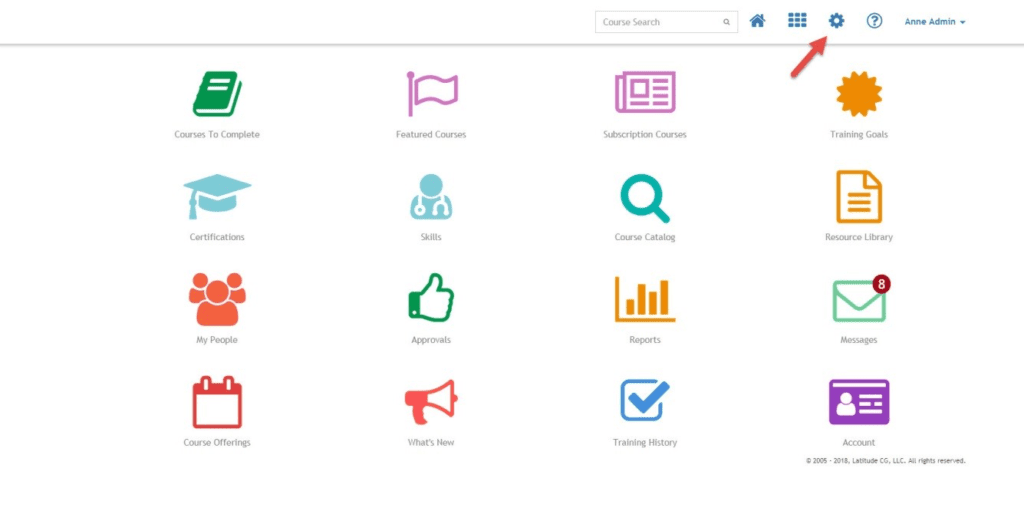
LMS and Course Design: Crafting Effective Learning Experiences at Their Intersection
- by Editone International
- Posted on November 25, 2023
LMS and Course Design: In the dynamic landscape of education, the synergy between Learning Management Systems (LMS) and course design plays a pivotal role in shaping effective and engaging learning experiences. Let’s delve into the key considerations and strategies for creating impactful courses within the framework of an LMS.
1. Understanding Learner Needs: A Foundation for Design
Before delving into the technical aspects, effective course design begins with a deep understanding of learner needs. Consider the target audience, their learning styles, and the objectives of the course. This foundational knowledge guides decisions regarding content presentation, interactivity, and assessment methods.
2. User-Friendly Interface: Navigating with Intuition
A user-friendly interface is paramount in both LMS and course design. Navigation should be intuitive, with clear pathways for learners to access modules, lessons, and resources. A clean and organized layout contributes to a positive user experience, reducing friction and allowing learners to focus on the content.
3. Multimodal Content: Catering to Diverse Learners
Embrace a variety of content formats to accommodate diverse learning preferences. Incorporate text, images, videos, audio, and interactive elements. This multimodal approach caters to visual, auditory, and kinesthetic learners, ensuring that the course content resonates with a wide range of individuals.

4. Engagement Strategies: Fostering Active Participation
Engagement is a key driver of successful learning experiences. Leverage interactive elements, discussion forums, quizzes, and collaborative projects to keep learners actively involved. Incorporate real-world scenarios and case studies to make the content relatable and applicable.
5. Assessment and Feedback: Guiding Learning Progress
Thoughtful assessment strategies are essential in both LMS and course design. Implement formative and summative assessments that align with learning objectives. Provide timely and constructive feedback to guide learners in understanding their strengths and areas for improvement.
6. Adaptive Learning Paths: Tailoring Journeys for Individuals
Utilize the capabilities of the LMS to create adaptive learning paths. Personalized learning experiences, driven by learner performance and preferences, enhance engagement and effectiveness. Adaptive paths ensure that learners progress at their own pace, reinforcing comprehension and mastery.
7. Mobile Responsiveness: Learning Anytime, Anywhere
In the age of mobile devices, ensure that both the LMS and course content are responsive and accessible across various screen sizes. Mobile compatibility enables learners to access materials at their convenience, fostering a culture of continuous and flexible learning.
8. Analytics and Data: Informed Decision-Making
Leverage analytics within the LMS to gather data on learner engagement, progress, and performance. Analyzing this data provides insights into the effectiveness of course design. Informed by analytics, instructors can make data-driven decisions to enhance and refine the learning experience.
9. Continuous Improvement: Iterative Design Process
View course design as an iterative process. Collect feedback from learners, assess outcomes, and use this information to refine and improve the course over time. The LMS serves as a dynamic platform that facilitates ongoing enhancements based on the evolving needs of both instructors and learners.
Conclusion
The marriage of Learning Management Systems and course design is a powerful alliance that has the potential to revolutionize education. By prioritizing learner needs, designing user-friendly interfaces, incorporating engaging content, and leveraging the capabilities of the LMS, educators can create transformative learning experiences. As technology continues to evolve, this intersection will play a crucial role in shaping the future of education, fostering accessible, personalized, and impactful learning journeys for individuals around the globe.
https://www.youtube.com/@editoneinternationalpvtltd3570
LMS and Course Design: In the dynamic landscape of education, the synergy between Learning Management Systems (LMS) and course design plays a pivotal role in shaping effective and engaging learning experiences. Let’s delve into the key considerations and strategies for creating impactful courses within the framework of an LMS. 1. Understanding Learner Needs: A Foundation…
